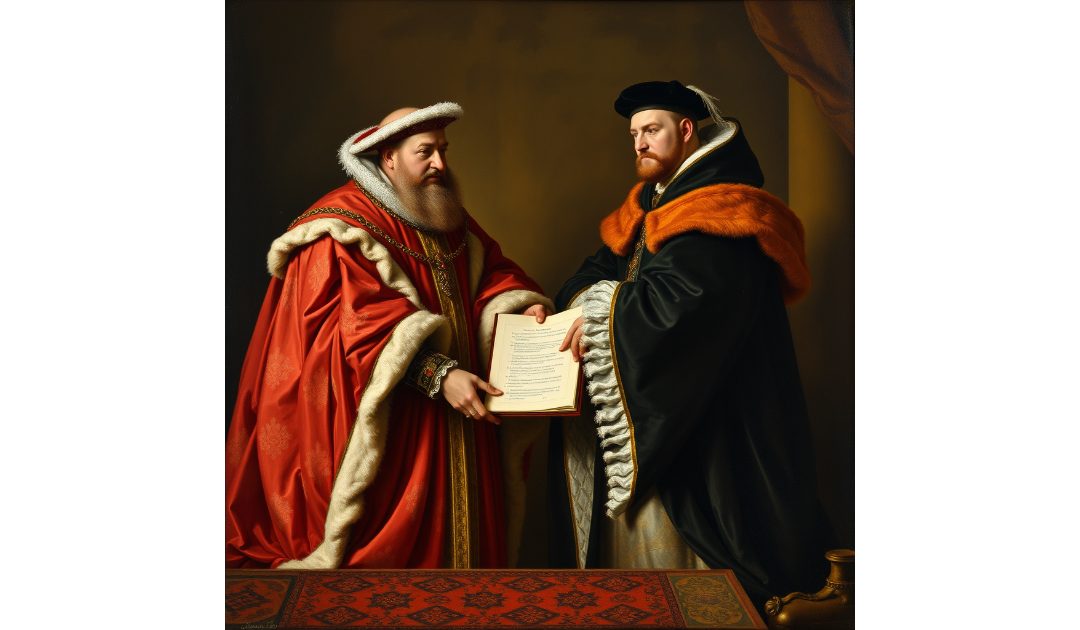On 24th December 1515 King Henry VIII appointed Thomas Wolsey as Lord Chancellor of England. I’m really enjoying the BBC adaptation of Wolf Hall: The Mirror and the Light. Wolsey was Thomas Cromwell’s mentor, and is often referred to.
Thomas Wolsey (c. 1473-1530) was a prominent English statesman and cardinal, best known for his role as a chief advisor to King Henry VIII. Born in Ipswich, Suffolk, Wolsey was the son of a butcher and was educated at Magdalen College, Oxford. His intelligence and ambition propelled him into the church, where he quickly rose through the ranks due to his administrative skills and political acumen.
Wolsey’s ascent began in earnest when he became a chaplain to Henry VIII in 1507. His close relationship with the king allowed him to gain significant influence, and by 1515, he was appointed Lord Chancellor, a position that placed him at the heart of English governance. As Lord Chancellor, Wolsey was responsible for the administration of justice and the management of the king’s affairs, and he proved to be an effective and powerful minister.
One of Wolsey’s key achievements was his role in foreign diplomacy. He sought to position England as a major player in European politics, balancing the interests of France and the Holy Roman Empire. His efforts culminated in the Field of the Cloth of Gold in 1520, a lavish summit meeting between Henry VIII and Francis I of France, aimed at strengthening their alliance.
Wolsey was also instrumental in the establishment of the English Reformation. He was initially a supporter of the Catholic Church and sought to maintain its influence in England. However, his failure to secure an annulment of Henry VIII’s marriage to Catherine of Aragon, which was crucial for the king’s desire for a male heir, marked the beginning of Wolsey’s decline. The Pope’s refusal to grant the annulment, partly due to political pressures from Catherine’s nephew, Emperor Charles V, left Wolsey in a precarious position.
By 1529, Wolsey had fallen from grace. He was accused of treason and stripped of his titles and properties. Although he was granted a chance to defend himself, he died on his way to London to face charges in 1530. Despite his controversial legacy, Wolsey’s impact on English politics and the church was profound. He was a complex figure, embodying the tensions of the Tudor court and the shifting religious landscape of the time.
Today, Thomas Wolsey is remembered as a skilled administrator and a key player in the events leading to the English Reformation, his life reflecting the intricate interplay of power, religion, and politics during the Tudor era.

